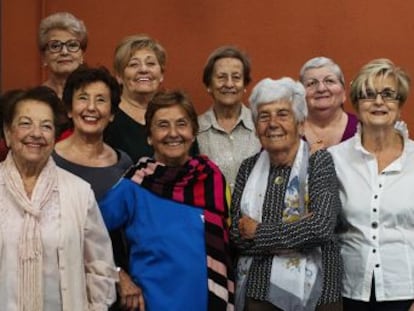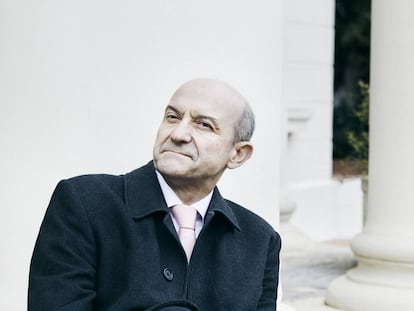The rise and fall of Mallorca¡¯s nightlife king
For 40 years Tolo Cursach ruled the island¡¯s night scene. But in March he was arrested and taken into custody accused of 16 different offenses. A born card shark, he has found that this time, the odds are stacked against him
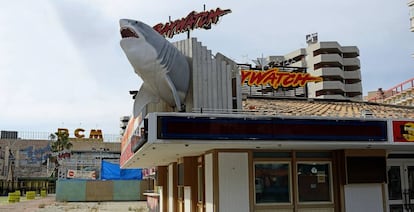
On August 24, 2003, Bartolom¨¦ ¡°Tolo¡± Cursach felt on top of the world. After 33 years of wheeling and dealing, he was finally center stage, rubbing shoulders with the great and good.
Thirty-three years of mingling with junkies and drunks and pimps in the small hours of the morning had paid off; 33 years of busting chops, buying allegiances, shelling out favors and giving orders to town mayors and police chiefs; 33 years of destroying rivals and keeping his wealth discreet in the traditional manner of gangsters in this mini-Sicily.
There has rarely been a time when Tolo Cursach wasn¡¯t under suspicion, but catching him red-handed was another matter. The obscure origins of his fortune triggered rumors in Mallorca as far back as the 1970s ?¨C whispers of packages in containers, and deserted coves. ¡°Either he was very clever or we were very stupid,¡± says a police source of the island¡¯s most powerful figure, who also happens to be a narcissist and a womanizer with four children by three different women.
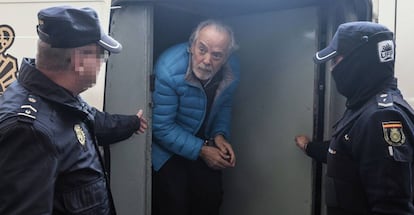
That Saturday in August 2003, the elusive Tolo put on his best Italian suit, knotted his silk tie and combed his dyed auburn hair. Dapper and proud, he acknowledged the cheers and applause as he stepped into the VIP box in Mallorca¡¯s soccer stadium to preside over the Super Cup game against Madrid. He was now king by day as well as by night.
Tolo¡¯s empire consisted of 30 nightclubs as well as bars and restaurants. He gave the English a wild time in Magaluf and provided beer and girls for the Germans in Arenal. The seafront promenade in Palma became his royal mile. Every night made him another million in cash.
Attending to his 1.5 million customers was a staff of 1,700. But Tolo¡¯s interests went beyond nightlife. He also owned 2.52% of all the developable land on the island, not to mention having investments in Brazil and the Dominican Republic. Bankrolling his ventures was the Bank of Valencia regional lender and its managing director Domingo Parra ¨C a tennis buddy ¨C who arranged for unlimited credit.
Mass tourism proved to be moneymaking machine and Mallorca sold out ¨C every season there were buckets of cash to be made
He owned a €30 million gym and 13 paddle-tennis courts and has been considered the savior of Real Mallorca soccer club since 2002, paying off its debts and acquiring a 50% stake in it, more than €20 million of which was paid in cash. In exchange, he was given third-party rights to its best players through an investment fund in Geneva called Investfootball, managed by his nephew Pedro Rossell¨®, who is also languishing in jail for threatening a protected witness. For Tolo, it¡¯s often a family affair.
But despite the rumors and suspicions, Palma cheered Tolo that Saturday in the Son Moix Stadium in August 2003. At one point, there he was, the king of the night standing with then-Spanish King Juan Carlos, with their competing tans. Close by were two government ministers from Madrid, Real Madrid president Florentino P¨¦rez and the regional premier of the Balearic Islands, PP stalwart Jaume Matas, Tolo¡¯s paddle chum and confidante. Completing the tableau was golden couple, the Infanta Cristina (King Juan Carlos¡¯ daughter) and her husband I?aki Urdangarin, who were basking in the glory of having an entire avenue dedicated to them. But no feeling of triumph could have been greater than Tolo¡¯s as he was saluted by the island¡¯s biggest hotel magnates: Escarrer, Riu, Flux¨¢, Barcel¨®, the same men that before wouldn¡¯t have been seen dead eating at his table.
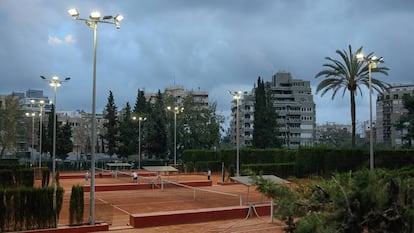
Tolo¡¯s team won 2-1. After the match, there would be paella and pink champagne at his Puntir¨® estate. There was a tangible air of prosperity on the island. These were the good times. Matas and Urdangarin had not begun their fall from grace, a process that would lead to the never-before-seen sight of a member of Spain¡¯s royal family inside a courtroom. The weave of corruption that stretched across the island ¨C from politics to business to construction ¨C was growing steadily. Mallorca had sold out to a mass tourism that was not only a money-making machine, but was also a dirty money-making machine. There were double accounting systems in the nightclubs thanks to state-of-the-art software; thousands of apartments being rented undeclared to millions of tourists hungry for drugs, sex and cheap alcohol. There were fiestas that involved mamading ¨C a ¡°party game¡± in which girls perform as many sex acts as possible in return for free alcohol ¨C and balconing ¨C jumping from hotel balconies into the swimming pool below. Specializing in this kind of fun were BCM in Magaluf and Megapark in Arenal, both owned by Tolo Cursach. BCM stood for Bartolom¨¦ Cursach Mas, though on the island the acronym was said to come from Bank of Cocaine of Mallorca.
The rule of Jaume Matas and his Popular Party (PP), who colluded with Maria Ant¨°nia Munar and her Uni¨® Mallorquina (UM) party between 2003 and 2007, was what is known as a kleptocracy. This state of affairs began 10 years earlier with Gabriel Ca?ellas, the previous regional premier of the Balearics. Ca?ellas was accused of bribery and prevarication with regard to the construction of the Soller tunnel, but avoided jail as the statute of limitations expired on his offence.
For a long time, everyone on the island knew something but no one was prepared to talk. Matas paid for everything with €500 notes and Munar had a safe in her seafront mansion big enough to fit a grown man. Both would end up in jail along with 20 other PP and UM politicians. Hundreds of senior officials, civil servants and members of their families would be indicted following the catharsis of 2008. Meanwhile, Ca?ellas became Cursach¡¯s right-hand man. When Cursach needed to cut a deal with the Balearic authorities, Ca?ellas was there to sell him a building and reclassify the rural land close to the Son Espases hospital.
According to economics professor and former Socialist economy chief Carles Manera, who inherited the mess left by the Matas administration, ¡°in those four years, more than €300 million in public funds was siphoned off in unjustified budgets, obscure allocations and outright theft.¡±
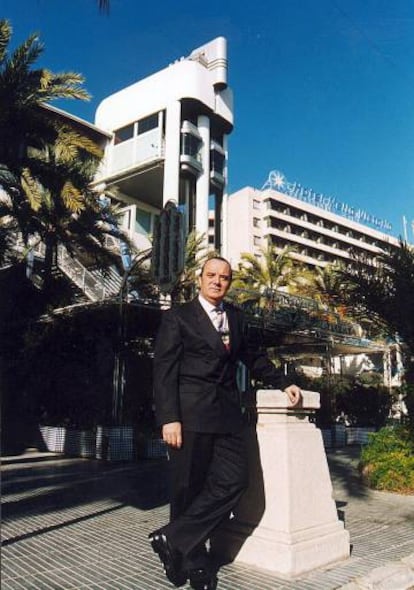
There was also €1.5 billion lost a year on the island in tax evasion. ¡°Most of the fraud happens where most of the money is,¡± says Ra¨²l Burillo, special advisor to the tax authorities in the Balearics between 2004 and 2010. ¡°It also happens where it¡¯s easiest. In Mallorca, the economy is focused on services, which means a lot more cash floating about than there is in industry. Nighttime means black money. You need the political will and the means to put a stop to it. And that hasn¡¯t happened.¡±
According to one Mallorca businessman, ¡°buckets of money have changed hands here with land fetching scandalous prices and many restaurants and hotels being paid for in €500 notes. Everyone was drunk on it until the crisis hit in 2008.¡±
Joan Mesquida, the former secretary of state for tourism, explains: ¡°Here, when you are appointed to public office, people say, ¡®You¡¯re going to get rich and if you don¡¯t, you¡¯re stupid!¡¯ The UM was nicknamed the monetary fund. This island works on favors; you know someone who knows someone who can get you what you want.¡±
The situation in Mallorca became explosive when the money from tourism was coupled with the money from rampant construction and frenzied speculation in real estate, extending to urbanizations, golf courses, industrial estates, building reclassifications and permits.
According to Miquel Capell¨¤, one of the most respected lawyers in Mallorca, rezoning rural land to urban lots multiplies its value by 30. ¡°And this, on an island where the land is very poor and has always been worth very little,¡± he says. ¡°Even less on the coast where nothing grows. It was a radical change for Mallorca. Buying something rural and having it reclassified meant earning more than you could in a year selling drinks to tourists. But first you had to come to some agreement with the politician deciding which land could be turned into gold. Obviously, this entailed sharing the profits.¡±
Historically, the people of Mallorca are discrete, austere, conservative and poor. It is a class-ridden society, whose nobility is descended from the knights who conquered the island at the bequest of James I of Aragon in 1229. They are renowned to be as snobbish as they are rich. Below them are the middle classes and, at the bottom of the pile, the tradesmen, subsistence farmers and fishermen. A few of these made a fortune from smuggling, which until the 1970s could involve entire villages. But by the 1990s, many had begun to prosper from tourism. Local GDP per capita rose from being negligible to outstripping the rest of Spain, while locals took to showing off their wealth to those who invaded them every year from the mainland.
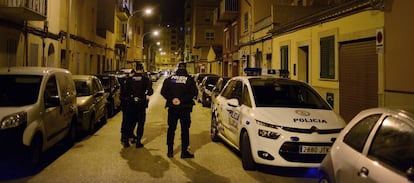
The invasion looks something like this: in 1950, Mallorca had 100,000 tourists; in 1960, there were 350,000; during the 1990s, six million tourists flooded in annually, a figure that has since more than doubled. Now, there are more than 250,000 hotel beds and a flight a minute.
Mallorca is undoubtedly the cradle of modern tourism. And during the last 47 years, nightlife, which makes up a large part of the industry, has been in Cursach¡¯s hands, making him the man rocking the cradle.
On February 28, 2017, Tolo Cursach was arrested along with his sidekick Bartolom¨¦ Sbert, and Antoni Bergas, alias ¡°The Sheriff,¡± a former police inspector, who took charge of ¡°gifts¡± and relayed instructions to Cursach¡¯s minions.
In the days following the arrests, Tolo¡¯s offices at the BCM nightclub were raided by the police¡¯s financial crimes section. After 72 hours at the police station, Cursach and Sbert were moved to Palma prison where they remain today charged with bribery, extortion, threats, money-laundering, homicide, corruption of minors and possession of firearms. The 16 different charges could amount to more than 80 years behind bars for Tolo.
The man who got into the police van on February 28 was hardly recognizable as the one who had lapped up the applause at the Son Moix stadium in 2003. Tolo had turned into a 69-year-old pensioner with white hair, an untidy beard and a disheveled air. And yet his eyes still held a defiant look as if to say, the game is not over yet.
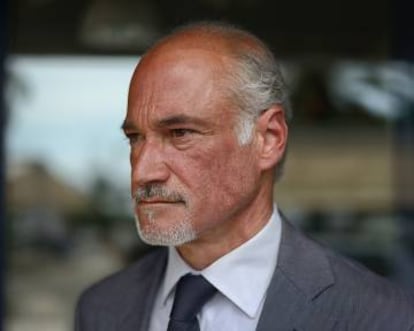
Cursach is, above all, a player. People describe him as self-assured, astute, outgoing, aggressive and superstitious, nice, cruel, intuitive, with a certain degree of self-control and the capacity to roll with the punches. A fellow gambler calls him a high roller: ¡°He would play for the highest stakes,¡± he says. ¡°It was scary. But he wasn¡¯t frightened to put €20,000 down on a hand. He could gamble thousands of euros on a game of parch¨ªs. I watched him gamble with people who would bet their wives or their yachts. There were big games at his house on Mondays. People came from Madrid. And he lost when he needed to in order to finish up winning.¡±
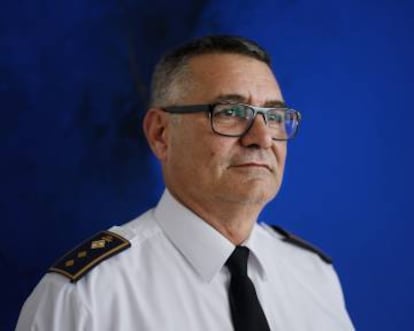
Like the majority of Mallorcans before mass tourism took off, Tolo¡¯s family was poor. They lived in a backwater town away from the coast, but Tolo had an uncle who worked at the exclusive Mallorca Tennis Club in Palma, an oasis of elegance at the heart of the capital, with its dozen immaculate clay courts and pavilion. The club was founded in 1924 by a group of local aristocrats.
In the 1960s, Miquel Cursach brought his nephew to help him tend the grounds and serve the gentlemen who wore Lacoste and drank Scotch. For the next 20 years, the club would be Tolo¡¯s center of operations. Rising up through the ranks, he got to be a pivotal figure before being declared persona non grata in the 1980s. But by then the club had taught him an invaluable set of skills: to play a semiprofessional game ¨C though according to a former tennis partner, ¡°he lacked the basics and discipline; he had other hobbies¡±; how to play poker; and last, but not least, how to worm his way into the impenetrable Palma elite, thanks to his friendship with club president, Pedro Alomar ¨C a Francoist, tax inspector, cousin of the mayor and small-time crook who thrived in Mallorca during the rancid pre-tourism era. Alomar would be his mentor; he would teach him good manners and how to cover up his debts. But when it became clear what Tolo was up to, there was a dramatic bust-up.
Tolo¡¯s skills at poker would provide him with the money necessary for his first business ventures. He fleeced friends and hooked up with police officers, lawyers and influential civil servants. He closed shady deals and managed to open Smash, a fashion boutique. Smash was also the name of his first disco, which was little more than a shack in Arenal. He was just 20 years old and the 1970s had just begun. Later there would be many more discotheques, paid for in cash. Nobody knew exactly where the money came from.
His first big project was Riu Palace in Arenal, predating the giant Megapark. From there, he branched out into Palma, with Tito¡¯s, Abraxas and Luna. Later he moved to Magaluf and, in 1988, opened BCM, the biggest nightclub in Europe. No licenses were required, not for Tito¡¯s, not for the Megapark, and not for the water park in Magaluf, known as Western Park.
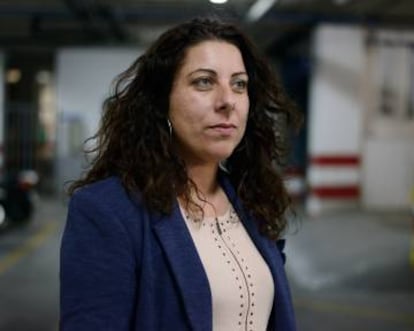
¡°Tolo acted with impunity as far as the councils of Palma and Calvi¨¤ were concerned,¡± says ?ngel ?vila, a nightclub entrepreneur who was brought to his knees by Cursach. ¡°He ended up with everything. He became overlord of the night. Any tourist coming to Mallorca inevitably dealt with one of his businesses. He threatened anyone he came up against and destroyed other people¡¯s businesses so he could snap them up at rock-bottom prices. His cash was limitless. He created a monopoly. If you dared to compete with him, he would get the police on to you and you¡¯d face fines and endless inspections. He would get you closed down. He also wielded influence in the associations set up for businessmen. And within the police. He had people in the PP and the UM draw up laws according to his needs.¡±
None of the big nightlife groups such as Pach¨¢, Space or Joy dared to open clubs in Mallorca ¨C this was Cursach¡¯s turf.
The nightlife empire provided Tolo with a strong base from which to dabble in other sectors such as real estate. He bought prime property at the center of Palma and snapped up the Son Valent¨ª industrial estate. He even managed to get his hands on land from the Palma City Council, which earned him €2 million in 2003 when the PP¡¯s Joan Fageda was mayor.
The new police chief doesn¡¯t move a muscle when asked if he also feels threatened. ¡°Poor things¡ They better not even think about it. My service weapon is always loaded¡±
Tolo was bold in his dealings, but if something didn¡¯t work, he changed gear, and absorbed the loss. In 1997, it became evident that some of his enterprises were simply money-laundering outfits, such as the BCM airline, which lasted just a year, and his investment in Real Mallorca soccer club and subsequently Atl¨¦tico Baleares, which he supported for one season. His foray into the world of sport came to an end when FIFA banned third-party ownership of players in 2015.
Tolo¡¯s monopoly lasted 30 years. With the demise of Jaume Matas in 2007, his fortunes began to change. That was the year Pedro Horrach, a local Mallorcan, was tasked with heading up the anti-corruption attorney¡¯s office. Horrach was itching to clean up the island and worked with equally determined prosecutors such as Juan Carrau and Miguel ?ngel Subir¨¢n, as well as Judge Jos¨¦ Castro, the treasury¡¯s Ra¨²l Burillo, and economy chief Carles Manera. In Mallorca, they became known as ¡°the incorruptible ones.¡±
¡°The corruption had clearly become systematic,¡± Horrach recalls. ¡°The authorities were rotten. But it was hard to get anyone to speak out against them because everyone knows everyone here. Some had family members in their employ, including in fictitious jobs where they had never worked. Some owed a favor. Or they were scared. In this context, it was impossible to keep investigations confidential. Rumors spread like wildfire on the island. The bad guys had eyes and ears everywhere, even in the judicial system. We would hold secret meetings in the office of lawyer Manuel Pomar. As soon as we detected a pocket of corruption, we would have to arrest the suspects immediately and keep them incommunicado and then follow the thread. That is how Matas, Munar and Urdangarin were brought down.¡±
Asked if they didn¡¯t investigate Cursach himself, Horrach explains: ¡°Now they say that it was all common knowledge. But what was known? That he was a nightlife guy? That he was operating in a shady world? There were rumors of drug trafficking and that he only declared what he was paid by credit card, which had to be about 10% of his turnover from a nightclub. There were suspicions, but never any proof.¡±
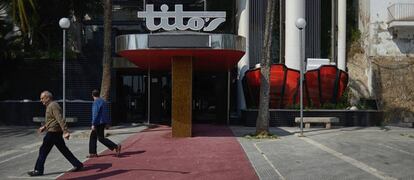
But the crisis years took their toll on Tolo Cursach¡¯s empire. Alcohol sales fell by 53% and total revenue by 20%. His investments in Brazil weren¡¯t doing well either. And there was a suspicious payment made to the Bank of Valencia to cover up a credit shortfall of €40 million. His idea of building a chain of gyms across Spain never got off the ground. His venture into the aviation industry came to nothing as did his dalliance with soccer. In real estate, his efforts to turn Son Valent¨ª into a big business complex, the sale of a building to the government for €40 million and the construction of a geriatric hospital beside the Son Espases hospital all cost him millions of euros and summons that he attended hiding behind a pair of dark glasses in 2011 and 2015. The net was closing in.
In 2013, it was revealed that members of the local police in Palma had spent decades acting as private security for two businessmen involved in nightlife. These officers were also running an extortion, bribery, protection and prostitution racket linked to nightclubs.
According to the judicial investigation into the case ¨C which is still under seal ¨C two important figures in the PP, counselor ?lvaro Gij¨®n and government advisor Jos¨¦ Mar¨ªa Rodr¨ªguez, acted as the link between the police and the two businessmen, Pascual and Cursach. For the first time in decades, dozens of witnesses were prepared to testify against Cursach in court. Around 80% of the police¡¯s illegal activities were related to his businesses.
The corruption case against the Palma police force has already brought five chief inspectors to book as well as putting 20 or so officers behind bars, while 100 more of its 886 members are facing charges. The person in charge of cleaning up the force is Socialist counselor Ang¨¦lica Pastor, who only arrived at the Sant Ferran police headquarters in the summer of 2015 and quickly showed that she is no pushover. She has received threats, as have the judge and the prosecutor in the case, Manuel Penalva and Miguel ?ngel Subir¨¢n, who have requested permission to carry weapons for protection. And she has had to bring in a chief of police from off the island: Josep Palouzi¨¦, a tough cookie from Girona who is also a member of the armed forces. The new boss doesn¡¯t move a muscle when asked if he also feels threatened. ¡°Poor things¡ They better not even think about it. My service weapon is always loaded,¡± he says.
After his protective shield disappeared, Cursach began to find his businesses being audited. In 2014, he was fined €6,000 for irregularities. In 2016, he was asked to pay €184,000. It looked as though his empire was falling apart as quickly as it had come together.
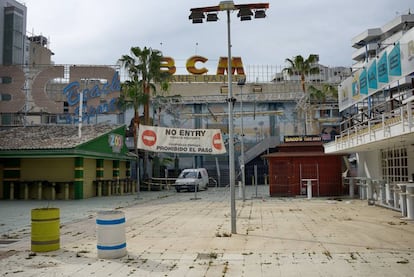
Following his arrest in February, two of Tolo¡¯s nightclubs were closed down ¨C Tito¡¯s and BCM, although Tito¡¯s has since reopened. From inside Palma jail, Tolo has a marvelous view of Son Valent¨ª business park, the site of his successes and biggest deals. But instead of contemplating what he has lost, he has enlisted the services of the prestigious defense lawyer Enrique Molina, formerly of Spain¡¯s High Court in Madrid to fight his corner. His defense is that there is a massive conspiracy against him. Meanwhile, he has handed his business over to his head accountant, Miguel P¨¦rez-Mars¨¢, obviously aware that his biggest battle could be with the tax authorities.
According to one of his old tennis partners, Tolo has been more of an advantage player than a businessman. ¡°He is a born card shark,¡± he says. ¡°As far as he¡¯s concerned, the way of getting the most out of life is to gamble. Right now, he¡¯s all-in.¡±
English version by Heather Galloway.

